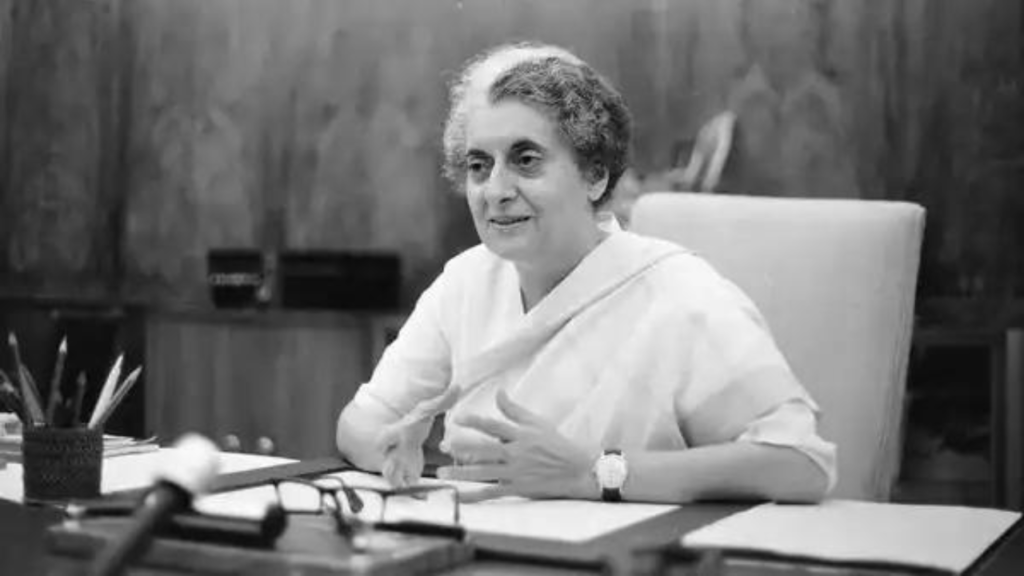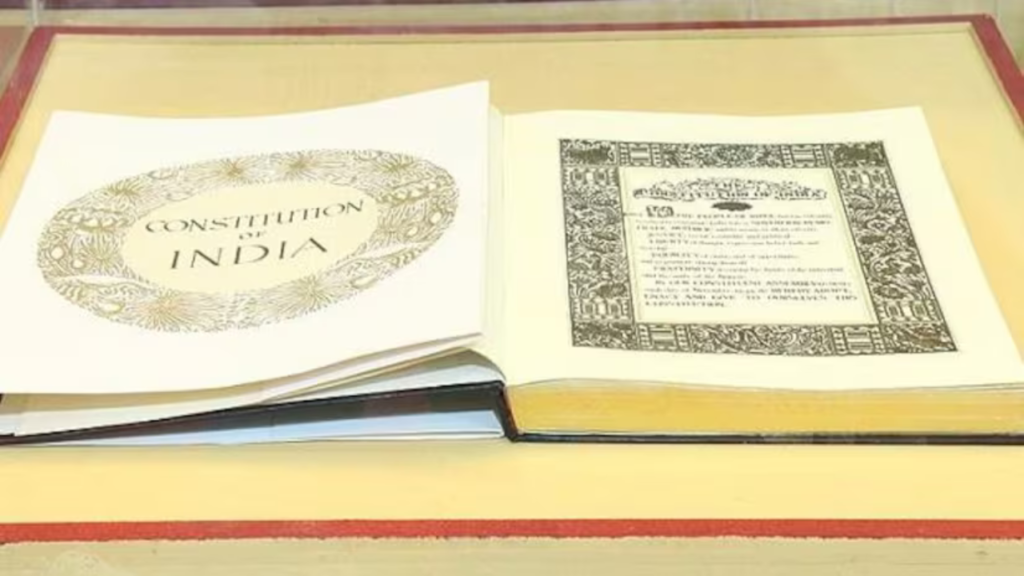On the 75th Republic Day of India, the Union government’s decision to publish the ‘original’ Preamble of the constitution online, omitting the words ‘secular’ and ‘socialist,’ has ignited a heated controversy. The move has revived historical debates surrounding the Preamble and its evolution since its adoption in 1949.
42nd Constitutional Amendment Act
The Preamble to the Constitution of India, adopted on November 26, 1949, by the Constituent Assembly, serves as a concise introduction, outlining the guiding principles and philosophy of the Indian Constitution. It underwent a significant amendment during the emergency period in 1976, under the 42nd Constitutional Amendment Act, introduced by then-Prime Minister Indira Gandhi.

The amendment added the words “socialist,” “secular,” and “integrity,” transforming the Preamble from a declaration of a “sovereign democratic republic” to a “sovereign socialist secular democratic republic,” emphasizing the “unity and integrity of the nation.”
According to Article 368(2), Parliament can change the Constitution by passing a Bill in each House with a majority of total members and at least two-thirds of the members present and voting. Once passed, the Bill is presented to the President for approval, and the Constitution is then amended.
In 2008, the Supreme Court rejected a plea seeking the removal of ‘socialist’ from the Preamble. The court, led by then Chief Justice K G Balakrishnan, emphasized the broader interpretation of socialism as welfare measures for citizens, arguing that its meaning evolved with time and circumstances. This decision reinforced the notion that the Preamble’s terms held diverse meanings in different contexts.
BJP’s controversy with “socialism” and “secularism”
The Bharatiya Janata Party (BJP), known for its historical opposition to the inclusion of “socialist” and “secular” in the Preamble, reiterated its stance. Critics within the party argue that these terms were politically motivated and do not align with the true spirit of the Constitution. Some BJP members advocate for removing “socialism” from the Preamble, asserting that it should not impose a specific ideology on future generations.
This recent controversy is not the first time the Preamble has been at the center of a political storm. In September 2023, discrepancies arose when copies of the Constitution provided to Members of Parliament omitted the words “socialist” and “secular.” The Congress Party raised objections, emphasizing that these terms were added later through a Constitutional amendment.

The year 2015 witnessed controversy when the Ministry of Information and Broadcasting used an image of the Preamble without the words ‘socialist’ and ‘secular.’ This move sparked criticism, prompting then Union Minister Ravi Shankar Prasad to defend it. He questioned the timing of the inclusion of these words, attributing them to the Emergency era, and advocated for a debate on the original Preamble.
In 2020, BJP MP Rakesh Sinha stirred the Preamble debate by moving a resolution in the Rajya Sabha, urging the removal of the term ‘socialism.’ Sinha argued that tying future generations to a specific ideological framework was restrictive, especially given the evolution of the Congress party’s stance over the years. He highlighted the shift from socialism to welfare to neo-liberalism, asserting the need for a more flexible and dynamic approach.
Congress leader Adhir Ranjan Chowdhury expressed concern, stating that the absence of these words in the copies was a serious matter. Union Law Minister Arjun Ram Meghwal clarified that the copies provided to MPs contained the original version of the Preamble, and the words were incorporated through constitutional amendments.
The BJP defended the exclusion, asserting that genuine copies of the Constitution without “socialist” and “secular” words exist, emphasizing that the change occurred after the 42nd Amendment. Parliamentary Affairs Minister Prahlad Joshi stated, “The constitution existed like this when it was framed. The change came into place after the 42nd Amendment. Genuine copies of the Constitution exist.”
A social media post by an undisclosed source urged citizens to revisit the original Preamble as India celebrated its 75th Republic Day. The post prompted reflection on how the nation has evolved while adhering to its foundational principles. The accompanying hashtag #NewIndia #RepublicDay2024 aimed to initiate a journey through time, exploring India’s many newly formed norms.









